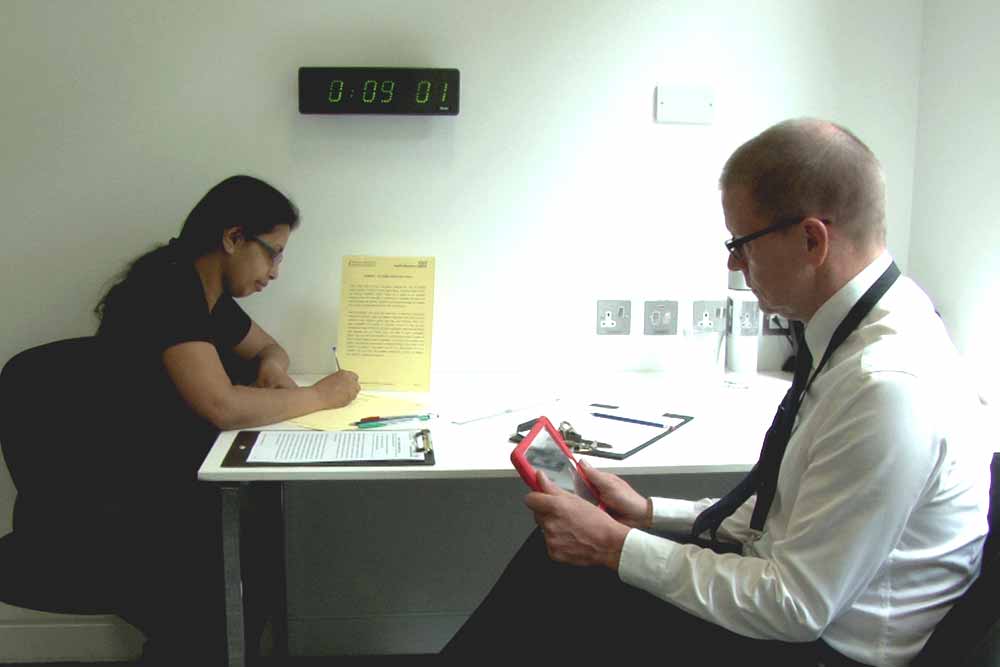Genomics trainees hold first specialty specific mock OSFA workshop
24 Genomics trainees completed a day of activities tailored towards preparing them for sitting their specialist OSFA in July.
- Published on
- 21st February 2019
- Written by
- James Beasley, West Midlands Healthcare Science Network
- Filed under
- STP, Trainee Network Group
On the 22nd of January 2019, the 2016 cohort for the Genomics specialty attended a trainee organised mock OSFA event in Birmingham. 24 Genomics trainees completed a day of activities tailored towards preparing them for sitting their specialist OSFA in July. The timing of this event in relation to the school organised mock OSFA was an important consideration, with attendees included in the decision making of this. As such, the feedback on this was very positive:
“The timing was perfect. Having the event relatively soon before the mock was a good idea.”
“Any earlier and I would have felt unprepared and any later I would have been too preoccupied with other assessments.”
“Happy with the timing as it made me aware of areas I’m weaker in whilst still giving me enough time to address those areas.”
The structure of the day
The morning consisted of a Q&A session given by a scientist with experience of being an OSFA assessor. This gave trainees the opportunity to ask questions about the OSFA assessment, giving them a better understanding of what will be expected of them. Trainees found this session very useful:
“This was really helpful. The assessor was brilliant at answering all of our questions (without making it all seem too scary).”
“It was really helpful to hear from an assessor and get a better understanding of what the OSFA is like from their perspective.”
This was followed by trainees splitting into pairs and going through some examples of OSFA stations together. These stations were generated by the attending trainees before the event, and represented a broad range of topics. The intention of this session was to give trainees an idea of what OSFA stations are like in a more relaxed and informal setting before sitting stations with registered clinical scientists in the afternoon. Feedback from the morning session included:
“This was very useful and an effective way to get through a lot of stations and a good way to prepare for the afternoon session.”
“This was a really good way of practising the stations in a more formal way (booth set-up) but with someone I am comfortable with.”
“I thought this was really useful. It was a nice way to go through the typical structure of a station and warm us up for being assessed by registered scientists in the afternoon.”
“It was good to get a spread of what we need to know! Has created a very good resource for everyone to revise from.”
After a quick lunch, trainees then had to gear themselves up for an afternoon of being assessed in a much more formal setting. During this time, each of the 24 trainees sat three OSFA stations assessed by Clinical Scientists from within the West Midlands Regional Genetics Laboratory (WMRGL). Each trainee was then given a pass or fail mark for each station, with additional feedback on their performance and how they could improve. Feedback for the afternoon station was incredibly positive, with attendees saying:
“The whole afternoon was really well organised and flowed seamlessly. The organiser made sure that we knew what was going on at all times, and where we were meant to be.”
“Super well-organised the assessors were great!’ ‘Extremely well organised and the assessors were very professional and fair.”
“Very well organised and good practice for the real thing.”
“Highlighted differences in lab testing strategies and provoked thoughts on additonal possibilities for results.”
“I feel slightly calmer about the OSFA now and it was so beneficial to get this experience as not all labs put on mock sessions for their trainees.”
“It was really helpful and has made me feel much more prepared for the real life OSFA.”
“It was a great day really useful, interesting and really well organised.”
Once all trainees had finished sitting these stations an informal feedback session was held so that trainees could discuss their experiences.
Feedback from the organiser, James Beasley – 3rd year Genomics trainee
Overall I am really pleased with the outcome of the first ever Genomics specialty specific OSFA. Being able to provide trainees with as much experience of an OSFA style setting as possible is really important, and based on the feedback from the other trainees the activities and structure of this day was really valuable. Attendees have recently received their marks and feedback for the stations they sat in January, which will be so useful in identifying personal weaknesses and strengths. A huge part of the success of this was down to involving the other trainees in decisions regarding how to make this day most beneficial for them, an important consideration for anyone planning on organising a similar day themselves.
I would also like to say a huge thank you to all of the Clinical Scientists within WMRGL that contributed so much time towards helping trainees within our year. The professionalism and dedication that you demonstrated on the day was amazing, and none of it could have happened without you.
If you would like some advice about organising a similar event in your area, email the West Midlands network at westmidlandshcstn@gmail.com
